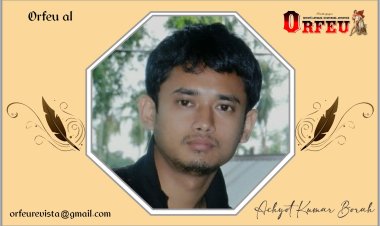Saitkulova Matluba (Sarvinoz Tuliyeva Abdulla)

Abstract-This article provides an overview of the innovation economy, human capital, and investment in human capital. The article describes the "human capital market" as a structural element of the labor market and the innovative development of the economy, as well as the role and effectiveness of innovation and human capital in the economy.
Key words: Innovative economy, human capital, human factor, human factor activation, market economy, investment, human capital market.
The main goal of the development of any democratic state is man. The development of society is measured not only by the size of the country's economic potential, but also by how much this potential is directed to the maturation and harmonious development of each person. The high value of human resources is determined, first of all, by the fact that their institutional substitution for innovative factors of production, such as goods and services with "intellectual capacity", is carried out in the form of income in the form of innovation in global competitive markets.
The analyzes of many studies related to the human factor are based on the highest goal of economic management - an important aspect of creating socio-economic development by activating the human factor. The human factor - human emotions, intelligence, science , human qualities, spiritual and moral values, nature, character, attitude to work, skills, experience, mind, outlook, body, health, age, gender, faith, mentality, ability. The urgency of the problem of human capital formation is reflected in the following: firstly, the national economy cannot develop without highly educated and qualified workers in the modern civilized society, and secondly, one of the main features of the future is the introduction of digital technologies into human life.
Many labor supply contests require that a certain amount of investment be made by the worker. If we call it an investment, then the worker himself incurs the initial costs in the hope of recouping later. Workers distinguish three main types of investment in the labor market: education and training, migration and search for new jobs. All three investments incur initial costs, and in all three workers hope to recoup that investment with future earnings. To emphasize that these three investments are as simple as other types of investment, economists call them investments in human capital, in which workers acquire skills that will benefit them in the future. The knowledge and skills acquired by the worker are acquired as a result of education and training, and they are also considered as an asset in production capital. The value of production capital is determined by how much profit this skill brings in the labor market. Job search and migration also increase human capital by increasing its wages. Investments in people's knowledge and skills are made in three stages. The first stage - the acquisition of human capital in childhood depends in most cases on the decisions of others. Parental resources and guidance, as well as the cultural environment and experiences in the early years of school, influence how a person approaches language learning, math comprehension, interest in learning, and overall healthy living. In the second stage, teenagers and young adults spend their full time studying in schools, lyceums and training programs. Thirdly, after entering the labor market, human capital enrichment of the workforce is carried out through on-the-job training, night schools, and short-term training programs. There is a high probability that investment in human capital will be made when expected future income is high and today's costs are low. The same can be said about people with fast learning abilities. A worker's ability to learn quickly reduces the time spent on training, and the costs of fast learning workers are also lower during training. Thus, workers with the ability to learn quickly will seek more training opportunities.
Sarvinoz TULIYEVA Abdulla qizi, [07.10.2024 9:15]
The fastest learning workers are those who have done the best in school. There are also opinions that human capital is a certain reserve of health, knowledge, skills, abilities, and motivation, formed as a result of investments and accumulated by a person. As long as this reserve is used appropriately in one or another area of social production, it helps to increase labor productivity and production efficiency, thereby affecting the increase in wages (income) of this person.
Innovative development is a new qualitative stage in the development of the market economy, in which, through the introduction of scientific and technical achievements in production and other areas, it is necessary to ensure economic growth by introducing new types of products in the market, improving technologies, and effective use of resources. is achieved. In accordance with the presidential decree "Science Concept of development until 2030" was approved. For the rapid innovative development of the modern economy in the country, it is necessary to pay great attention to the issues of modernization and diversification of production, the introduction of high-power technologies and the training of specialist personnel who can work in them. The basis of the new innovative economy is human capital, the main driving force of social and economic development of modern society. According to the United Nations, Uzbekistan ranks 114th out of 190 countries in the human potential development index. The index of Uzbekistan on this indicator is equal to 0.675. When calculating the human potential development index, the main indicators that can be taken as the basis of human capital, that is, the index of indicators in three areas, such as health, education, living standards of the population or the real income of the population, are covered. Norway (0.944), Australia (0.935), Switzerland (0.930), Denmark (0.928), and the Netherlands (0.922) occupy the top five places according to the human potential development index. According to this indicator, Russia ranks 50th (0.798), Kazakhstan 56th (0.788), Georgia 76th (0.754) among the CIS countries. Neighboring Turkmenistan is ranked 109th (0.688), Kyrgyzstan 120th (0.655), and Tajikistan is ranked 129th (0.624).
became a country capable of carrying out reforms. The concept of human capital as an economic and humanitarian category (term) has been in circulation since the 60s of the last century, and this concept initially began to express the human factor at the center of economic relations and production processes. revolution, widespread information technologies, changes in the economic situation and models in the world have changed and expanded the meaning of the concept of human capital. National human capital accounts for about half of the national wealth of developing countries, while in developed countries this indicator about 80%. Because, at present, human capital is a separate, intensive and complex factor of socio-economic development, and it appears as a guarantee of economic growth based on innovations and high technologies. Its difference from natural resources, classic labor and usual types of capital is that it always requires a high level of investment and requires a certain period of time for the profit from these investments. In the 1990s, in developed countries, 70% of all investments were spent on human capital, and about 30% of investments were spent on fixed capital. The state takes the main part of investments in human capital, which is currently one of the main levers of the state's direction of the economy. However, the national human capital today remains the main factor of intensive development of the economy.
Sarvinoz TULIYEVA Abdulla qizi, [07.10.2024 9:15]
Summary. Human capital is not only an economic category and concept, the current interpretations of human capital came to the fore because this issue first came to the attention of economists and it is directly related to the economic situation and development of a particular country. In fact, the topic of human capital is an object of investigation not only for economists, but also for philosophers, sociologists, pedagogues and psychologists. For example, philosophers study the system of spiritual qualities formed in a person in the process of gaining life experience, education, work, and sociologists study the issues of connection between these experiences and skills, knowledge and the social environment in which he lives, pedagogy and science conducts research on the knowledge, experience and skills formed in a person with the means of education and training, and psychology deals with the cognitive (relationship with human mentality and potential) and human behavior of the knowledge, experience and skills formed in a person should clarify the problem of influence.
List of used literature:
1. Decree of the President of the Republic of Uzbekistan "On the strategy of actions for the further development of the Republic of Uzbekistan" February 7, 2017, No. PF-4947.
2. The main indicators of socio-economic development of the Republic of Uzbekistan in 2014-2018. http://www/stat.uz.
3. Decree of the President of the Republic of Uzbekistan dated March 31, 2017 "On the establishment of the State Committee on Investments of the Republic of Uzbekistan" // http:// www.lex.uz.
4. Decree of the President of the Republic of Uzbekistan dated November 29, 2017 "On the establishment of the Ministry of Innovative Development of the Republic of Uzbekistan" // http://www.lex.uz.
5. Abdurakhmonova K. Kh. Human development.
6. Abulkasimov Kh.P. The human factor in the economy: formation, implementation and activation. - T.: Academy, 2006.
7. U.A. Madrahimov. Impact of aggregate demand and its composition on economic growth. Scientific electronic magazine "Economy and innovative technologies".
8. www.stat.uz - the official website of the State Statistics Committee of the Republic of Uzbekistan.
Saitkulova Matluba
Uzbekistan Karshi State University, Faculty of Economics, student of the 3rd stage of economics



 Moderator
Moderator 




